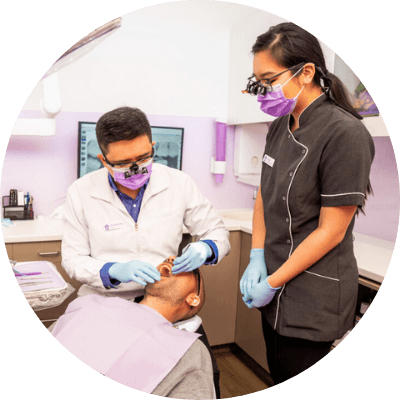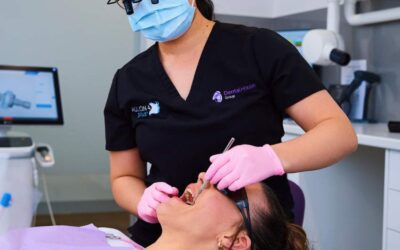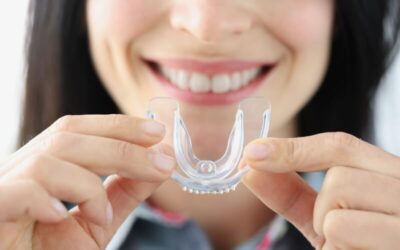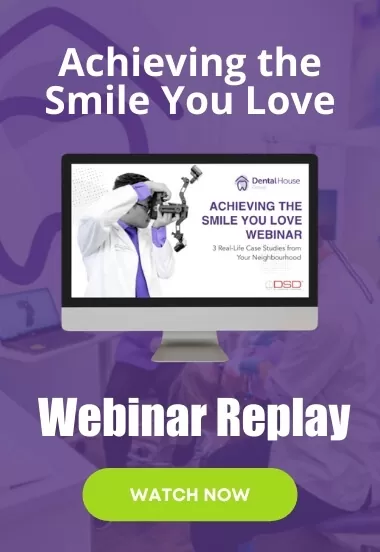Do Vegetarians Have Better Teeth?
Do Vegetarians Have Better Teeth?

More than just a menu, being vegetarian is frequently cultural, often a statement, and for some it remains a curiously evocative term.
Abstaining from the consumption of animals can be about religion, ethics, health issues, or just plain taste and texture; a lifestyle free of the products and by-products of animal slaughter is imbibed with spiritual, ecological or political beliefs. It can be for financial reasons. It can be something you do three nights a week just .. because. With an estimated 375 million vegetarians worldwide – that’s one in ten people – even if you’re not one, it’s unusual to not know someone who is.
Meat production is a major contributor to climate change and land degradation, and with diets high in red and processed meats linked to greater risks of cardiovascular disease, type 2 diabetes and certain cancers there’s increasing interest in the Western world in plant-based eating.
With its deeply rooted culture and religions, India ranks the lowest consumer of meat in the world. 80% of its population is either vegetarian or vegan, gives it a per-person-per-year meat consumption of 3.2kgs. That’s about a 1kg more than the average American, Australian and Briton consumes every week. Brits have actually cut their meat consumption by 17% over the past decade, but their national food strategy of early 2021 for a sustainable diet based on sustainable foods, these efforts will have to be doubled for targets to be met.
Avoiding meat and fish, and fully excluding or massively reducing the consumption of animal products calls for better scientific understanding of how plant-based diets affect human health. Particularly in regard to any potentially relevant effects on cognition and mental health; and the possible basis for any differences between participants of generations of vegetarianism, and those without that ancestry. A putative pathway of the health effects of plant-based diets involves gut microbiome; which is of increasing scientific interest through the Human Microbiome Project.
Plant-based diets have a specific microbial profile. For obvious reason, omnivore is the most different from vegan, but it’s not always different from vegetarian.
The gut microbiome of vegans, vegetarians, and omnivores differ in terms of total richness and abundance of Bacteroidetes: three large classes of rod-shaped, gram-negative, non-spore-forming, anaerobic or aerobic bacteria that are widely distributed in soil, sediment, and sea water, as well as in the gut and skins of animals. It’s why the use of vegan/vegetarian/omnivore labels to infer composition conclusions on gut microbial minutiae are limiting. They don’t sufficiently define diet in terms of gut microbiota nutrients, and oversimplifies the impact of food on gut health.
After 30 days of a sample of obese people following a vegetarian diet, fewer pathobionts were present, protective species that improve lipid metabolism were more prevalent, and a reduced level of intestinal inflammation was noted. In some of the group, specifically vegan gut microbiomes were found – while an explanation could not.
Which brings us to the second most reported motivation for vegetarianism: health. Often it’s a cover for weight issues or concerns; many mistakenly equate thinness with fitness and wellbeing. Interestingly, eating disorder sufferers deem health as a reason for their vegetarianism more frequently than those in the general population as their instigator. Certainly vegetarianism is not a causal factor in the development of an eating disorder, but it can be a symptom of the illness with other indicators taken into account.
It was previously thought that a diet lacking meat would mostly prove deficient, but positive health benefits include a lower body mass index score, reduced cholesterol and glucose levels, and a decreased risk of certain cancers and cardiovascular disease.
Basically, the beneficial effects on metabolism garners overall scientific support for a plant-based diet. Most people who know vegetarians have been approached at one time or another, to become convinced of its advantages, or urged to at least just try it out.
Is vegetarianism actually the better option for a long and healthy life?
As it turns out, from a holistic perspective the evidence is still unclear.
The cognitive and psychological effects of a plant-based diet are inconclusive and ongoing; and in dentistry, there are interesting results.

Eating more vegetables, fruit, legumes and nuts has obvious benefit, and a balanced vegetarian diet is high in plant-based proteins and low in fats. It appears that done properly, countering animal for plant protein is quite healthy. Yet there’s ambiguity in how such diets affect health in the long run, because being vegetarian may not be the only factor. Generally, people who adopt any specific diet pay more attention to what they eat; and vegetarians are typically more health-conscious than meat eaters.
Certainly, combined with other healthy behaviours a meatless diet can increase longevity, as can other food frameworks like the Mediterranean or DASH diets.
Studies have been carried out since the 1970s looking for connections between vegetarianism and dental health. However mixed the evidence is over 40 years – with almost equally positive and negative aspects being found – what does emerge is that the specific oral health issues to which vegetarians are more prone.
A 2019 study reveals that vegetarians face a twofold greater risk of dental erosion and issues related to compromised tooth tissue, but have better gum health. What also transpired is the point for further investigation: whether better cardiovascular function and a diet more varied and richer in raw foods with chewier, rather than sticky or glutinous food textures overridingly supports and maintains periodontal function and resilience.
It’s the consumption of more acidic fruits and vegetables both in larger quantities and more consistently that lowers mouth pH, and this in turn contributes to enamel damage and the development of cavities. Since 2004 it has been suggested that a vegetarian diet contains too few amino acids – essential for maintaining dental tissue structure and healthy wear and tear repair.
Interestingly, although significantly better oral hygiene habits are reported among vegetarians, the use of fluoride toothpaste is notably less frequent.
Any link between a vegetarian diet and oral health is confounded in several ways. With an overall more balanced lifestyle, practising generally more diligent oral hygiene habits and better sleep routines, as well as communing more with nature are examples of possible influences on wellbeing beyond food.
What’s interesting is that with confirmation and the astounding developments in dentistry, a next step would be the development of strategies.
Preventative, and if necessary, intervention methods could bring better dental health outcomes not only for vegetarians, and ergo, vegans and meat eaters too.
How contemporary a context for a theory and practice that dates from the 6th century BC.
DISCLAIMER:
The content has been made available for informational and educational purposes only. Melton Dental House does not make any representation or warranties with respect to the accuracy, applicability, fitness, or completeness of the content.
The content is not intended to be a substitute for professional personal diagnosis or treatment. Always seek the advice of your dentist or another qualified health provider with any questions you may have regarding a dental or medical condition. Never disregard professional advice or delay seeking it because of something you have read or seen on the Site.
Services we mentioned:
Related Articles
Red, Red Wine: Is It Beneficial For Oral Health?
Is red, red wine beneficial for our oral health? Or does it just feel good at the time & if you overdo it you feel like cr*p the next morning…
Detecting Oral Cancer Is Given The Brush
In 2020, Oral Cancer accounted for almost 380,000 cases, and 180,000 deaths globally. It’s on the increase with diagnosis incidents…
Could The Surge In Pneumonia In Children Be Related To Their Teeth Brushing?
Kids and teenagers are not self-maintaining, and nor is their oral health. Teeth brushing: spend time with it frequently…
What Is Dental Sleep Medicine? It’s Not Sleep Dentistry
Dental Sleep Medicine is the intersection of dentistry with issues affecting sleep. Snoring, sleep apnoea, & related breathing disorders…













